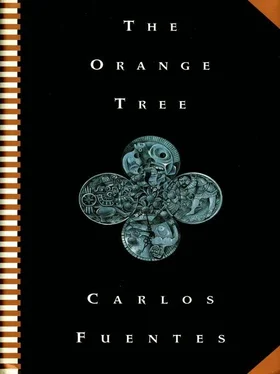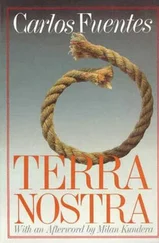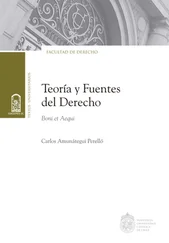I appropriate it. It’s my responsory, my requiem.
The night fell
Now, at night, I think about the fact that barely twenty-four hours ago I was swimming in a pool filled with flowers in a luxury hotel, thinking about where to go to have some fun. With my chin leaning on the edge of the pool, I read and tried to memorize a poem by William Butler Yeats that evokes past softness and the deep shadows of my eyes. And if the great modern poet of my homeland were to see me now, would he weep? I actually think he foresaw my fate (according to Leonello Padovani, a great poem is prophetic and communicates what we are going to be) when he wondered about those who loved my moments of glad grace and my beauty, with love false or true, and added: How many were they, how many? How many eyes, how many platonic lovers does appearing on screen grant you, when you stand in for Apollo in the modern mythology proffered by movies? Does the poet answer? Does he say something more? I try to recall the end of the poem, but in death my memory doesn’t respond. It’s stubbornly silent. I’m encouraged. Does it mean that with the poem unfinished, I still have a destiny to live out, an unfinished margin of my own life in death?
I’ve fornicated. I’ve died. I’ve discovered that dying means reading the minds of the living.
But my professional (not to say artistic) appetite is not so easily satisfied. Is this my stellar role? My seven producers here will decide that for me. The night scares them. They’re adrift. Both they and I know it. They’re afraid that if they start the motor it will hurl them on an uncontrollable, catastrophic course. They could, as Doris suggested, start it and dash off into the four points of the compass. Which one — north, south, east, west — brings them to shore first?
I don’t think that’s their problem. I may spend the night floating and staring at the stars, but what they’d like is to disappear from the night: the women, the stars. Solitude adrift gives them an absolute night without a roof, one that doesn’t belong to them, their usual lives. This night returns them to the helplessness they’ve only managed to escape through self-deception all through their short lives. Young and dumb. With just enough intelligence not to throw me to the fish. But without enough intelligence to let themselves be guided — not by the instruments that horrify them or the words of which they are ignorant (I look at them and think that thanks to these women technology once again becomes magic) — but by the stars they’ve never known anything about. Perhaps in immobility they may find their only security.
As if she’d heard me, Dolores says out loud: “We sure don’t have a lucky star.”
I’d like to know what species they really are. Machines and nature are equally alien to them. So for what purpose, for whom have they been created? Thinking about them from the perspective of death, I recognize and reconcile them. They are the children of artifice, neither nature nor technology. Do they have the power to re-enchant the world? Maybe they are only the energy of the artificial. How little there is of it, how intense it is, how useless is everything that happens to us.
Sunrise
Well, at least the sea behaved like a mirror. The ketch has the wind in its sails and is heading farther out to sea. The motor is still turned off. There are no birds in the sky. The women wake up. They shake off their sleep with sensual movements that I recognize and am thankful for. Sexy until death. They’re hungry. It’s written all over their faces. All that’s left are bits of olives, cheese, and slices of jicama. Dulces Nombres grabs the platter as if it belonged to her and starts eating. The morning breeze arouses their appetites. Otilia pulls the platter out of her hands. The olives, uniformly perforated so the anchovy can be inserted, bounce over the deck. One of them falls, absurdly, between my lips. The two girls steal bits of the antipasto from each other, but their avid hands stop, confused and repelled, over my lips and the olive which now adorns them.
The base of the mainmast creeks in the mast hole. Doris quickly steps in and arranges things so that what’s left of the platter is distributed equally. “Is there anything else to eat?” “Sure,” laughs Nicha the sneezy. “The olive in handsome’s mug.” No one else laughs. No, there’s nothing else but the platter. But there’s stuff to drink: bottles of Campari, Beefeater, Johnnie Walker, Bacardi, ice, and mineral water. You won’t die of thirst. Besides, I taught them to fish. I know it was only a pretext. I hope they think of it. There are bonito and hake to be had here.
They don’t think about any of that. Two things happen. The dawn heightens the senses, especially smell. The night seems to stock up the smells of the world in order to set them free at daybreak, loaded with dew or sage, with mist and moist earth, with puppy skin and the sweetness of the beehive, with coffee beans and tobacco smoke, with cumin and wallflower. All that evokes daybreak, associating it with different places on earth. The Pacific, the sea of Balboa and Cortés, should yield its own strong, marvelous aromas torn from the bottom of the ocean and from nostalgia for the land. But grumpy Otilia can only evoke oranges; she says that ever since she was a little girl she’s drunk orange juice as soon as she awakens. It was the only luxury in her home, in all the American movies they drank orange juice before going to work or school, but in this damn boat there is no orange juice, not even the smell of an orange. She begins to cry.
The truth is that only one smell takes possession of The Two Americas. It’s the smell of my body. I’ve been dead for eighteen hours. I’m beginning to stink. Eight women with my rotting body. I read their eyes. What are they going to do with me? The waves begin to get rough. They don’t know what to do. Snow White saves my life. Excuse me: she saves my death. She sees the same thing I do. The eyes of the seven dwarfs reflect more hunger than disgust. Snow White makes her play. She quickly starts the motor. They all turn to look at the new captain. The motor coughs, sneezes, spits, but doesn’t start. Nicha catches the sneezes from the motor. We all look up at the spars to see if the mast and the booms are keeping the boom sail and the jibs tight and swollen.
Noon
I can’t stand the heat. I beg them to do something, cover me with a canvas, for pity’s sake, carry me down to the cabin and lay me out there. I’m good and stiff. Soon they won’t be able to move me. I stink and I’m hot. I almost wish they would throw me overboard. I long for the coolness of a bath, the orange juice desired by Otilia. But the women think only about hunger, which is now surfacing in the looks they exchange among themselves and sometimes turn on me. They try to drown their hunger with rum and whiskey. They begin to get sick. Drunk and dizzy, Soledad and Nicha end up vomiting. Doris grabs them by the hair, pulls them around, and scolds them. Bashful and Sneezy cry in despair, “What are we going to do now? Everything was going so nice, the heat, the sailing around, the sex. Now just look, it’s all fucked up.” “Same as always,” says Dolores. “Same as always. Damned life.”
It must be three in the afternoon
The heat is unbearable. The sea is possessed by a calm that presages something bad. They don’t know what to do with me. They don’t want to touch me, true enough. I fill them with terror, disgust, compassion. They don’t even dare to close my eyes. They haven’t recognized my death. I’ve discovered that to die is to acquire, in a single instant, the ability to see the images that pass through the heads of the living. Through the heads of these women, like a movie running nonstop, run the same images of a little girl shot to death in Los Angeles or of a dead whore at the entrance to a nightclub with a fan between her legs. An old man thankful for the presence of a girl when he dies. Or a girl thankful that the branch of an orange tree defers the certainty of death. Should I be satisfied with last night’s unconscious, spontaneous response provoked more by the end of the day than by my death? A little white box and four candles stuck into Coca-Cola bottles. To whom can I commend myself? María de le Gracia, all by herself, quickly pulls my pants up.
Читать дальше












